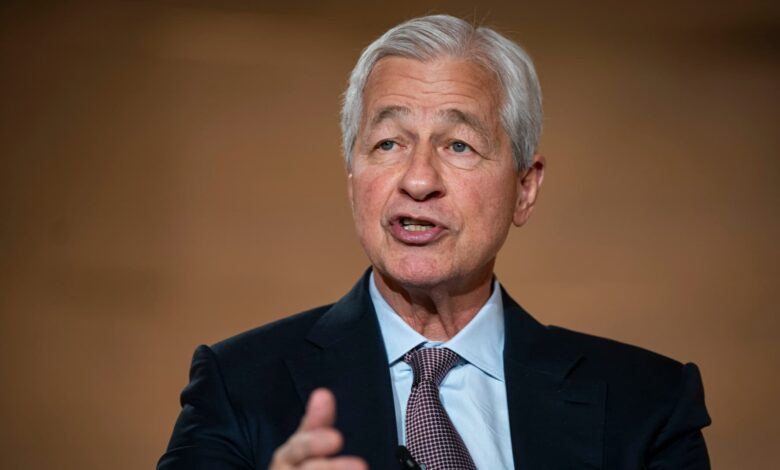Jamie Dimon says Trump tariffs will boost inflation, slow U.S. economy

JPMorgan Chase CEO Jamie Dimon recently spoke out about the potential impact of President Donald Trump’s newly announced tariffs on the U.S. economy. In his annual shareholder letter, Dimon expressed concerns that the tariffs could lead to higher prices on both domestic and imported goods, ultimately slowing down an already weakening economy.
Dimon highlighted the short-term effects of the tariffs, emphasizing the likelihood of inflationary outcomes as input costs rise and demand increases for domestic products. He acknowledged that while the tariffs may not necessarily cause a recession, they will certainly hinder economic growth.
As the first major Wall Street bank CEO to publicly address Trump’s tariff policy, Dimon’s remarks come at a tumultuous time for global markets. The uncertainty surrounding the tariffs has caused stock market volatility, with the worst week for U.S. equities since the onset of the Covid pandemic in 2020.
Dimon’s comments in his annual letter appear to contradict his earlier stance on tariffs, where he downplayed concerns and emphasized their benefits for national security. However, the scale of the tariffs announced by Trump last week has raised significant concerns about their potential negative impact on the economy.
Looking ahead, Dimon warned of the potential for ongoing inflation and elevated interest rates, even as the economy continues to weaken. He cited various factors contributing to economic turbulence, including geopolitical issues, ongoing inflation, high fiscal deficits, and elevated asset prices.
Despite the challenges facing the economy, Dimon remains cautiously optimistic about the future. He emphasized the need for deep reform and strengthening of the global economic system, urging leaders to prioritize long-term stability and prosperity over short-term gains.
As the leader of JPMorgan for nearly two decades, Dimon has overseen significant growth and success for the bank. However, he recognizes the importance of addressing current economic challenges and ensuring the long-term health of the U.S. and the global economy.
In conclusion, Dimon’s annual letter serves as a stark reminder of the critical crossroads facing the U.S. and the world. By addressing key issues such as immigration, trade imbalances, and deregulation, Dimon advocates for a balanced approach that prioritizes economic stability and global cooperation. As the economy navigates uncertain waters, Dimon’s insights and recommendations offer valuable guidance for policymakers and business leaders alike.





